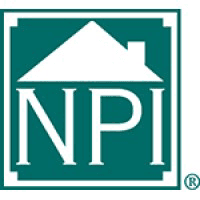Not sure if HouseMaster is right for you?
Talk to a Franchise Advisor who can match you with your perfect franchise based on your goals, experience, and investment range.
Talk to an ExpertHouseMaster
How much does HouseMaster cost?
Initial Investment Range
$58,825 to $92,675
Franchise Fee
$43,750
As a franchisee, you will establish and operate a business, which offers building inspection and related services to residential and commercial customers using the trade name “HouseMaster®.”
Enjoy our partial free risk analysis below
Unlock the full risk analysis to access 9 more categories covering 100+ risks.
HouseMaster July 1, 2025 FDD Risk Analysis
Free FDD Library AI Analysis Date: August 22, 2025
DISCLAIMER: Not Legal Advice - For Informational Purposes Only. Consult With Qualified Franchise Professionals.
Franchisor Stability Risks
Start HereDisclosure of Franchisor's Financial Instability
Medium Risk
Explanation
The audited financial statements in Exhibit C show that Neighborly Company, the entity providing operational support, incurred significant net losses in 2023 and 2024 and has a large accumulated deficit. While its parent, Neighborly Assetco LLC, guarantees performance and appears financially sound, the manager's financial health could potentially impact the quality and consistency of support services you receive. This warrants careful review of the guarantee's strength.
Potential Mitigations
- An accountant should analyze the financial statements of both the manager and the guarantor to assess the manager's operational viability and the real-world strength of the parent guarantee.
- It is advisable to have your attorney review the parent guarantee in Exhibit D to understand its terms, conditions, and limitations.
- Discuss the financial performance of the manager with your business advisor to understand potential impacts on franchisee support.
High Franchisee Turnover
High Risk
Explanation
Item 20 data reveals a significant number of outlets leaving the system over the past three years. In 2024, a total of 26 franchised outlets were terminated, not renewed, or otherwise ceased operations, representing over 10% of the outlets at the start of the year. This level of turnover could indicate potential issues with franchisee profitability, satisfaction, or the overall business model, which warrants further investigation.
Potential Mitigations
- Your business advisor should help you contact a significant number of former franchisees listed in Exhibit E-2 to understand their reasons for leaving.
- An accountant should analyze the three-year turnover trend and its potential implications for the system's stability.
- Discussing these turnover figures directly with the franchisor may provide additional context, which your attorney can help evaluate.
Rapid System Growth
Low Risk
Explanation
This risk was not identified. The franchisor is not undergoing rapid expansion; in fact, Item 20 data indicates a net decrease in the number of outlets over the last three years. Uncontrolled growth can strain a franchisor's ability to provide adequate support, so its absence can be a positive sign, but the reasons for system shrinkage should be understood.
Potential Mitigations
- A business advisor can help assess whether a franchisor's growth rate aligns with its support capabilities.
- When evaluating a franchise, discussing the franchisor's growth plans and support infrastructure with your attorney is important.
- An accountant's review of financial statements can reveal if a company has the resources to support its expansion.
New/Unproven Franchise System
Low Risk
Explanation
This risk was not identified. Item 1 indicates the HouseMaster brand has been franchising since 1979, making it a very established system, not a new or unproven one. Investing in a new system carries higher risks due to the lack of a track record, unrefined support systems, and lower brand recognition.
Potential Mitigations
- A business advisor can help you investigate the history and track record of any franchise system you consider.
- It is prudent to have an attorney review the franchisor's business experience as disclosed in Item 1.
- An accountant can analyze the financial statements in Item 21 to gauge the stability of a new system.
Possible Fad Business
Low Risk
Explanation
This risk is not present. The business model, providing home inspection services, is a well-established and essential part of the real estate transaction process, not a temporary fad. A fad business lacks long-term consumer demand, which can pose a significant risk to an investment with a long-term contractual commitment.
Potential Mitigations
- A business advisor can help you research the long-term viability and market trends of any industry before investing.
- Evaluating the franchisor's plans for innovation and adaptation to market changes is a crucial step for any franchise.
- Your financial advisor can assist in assessing whether a business model is sustainable beyond current trends.
Inexperienced Management
Low Risk
Explanation
This risk was not identified. The management team detailed in Item 2 possesses extensive experience in franchising, with many executives having long tenures within the HouseMaster system or its parent company, Neighborly. Inexperienced management can be a significant risk, as it may lead to poor support, weak systems, and strategic errors.
Potential Mitigations
- A business advisor can help you research the backgrounds and specific franchise experience of the key management team.
- Consulting with your attorney to review Item 2 disclosures is a fundamental due diligence step.
- Speaking with existing franchisees can provide valuable insight into the quality and effectiveness of the management team.
Private Equity Ownership
High Risk
Explanation
The franchisor, HouseMaster SPV LLC (HouseMaster), is part of a brand portfolio ultimately controlled by the private equity firm KKR, as disclosed in Item 1. This ownership structure may prioritize short-term returns for investors, which could potentially lead to increased fees, reduced franchisee support, or a quicker sale of the brand. This dynamic introduces a different set of motivations compared to a founder-led company.
Potential Mitigations
- Your business advisor should research the private equity firm's reputation and track record with its other franchise brands.
- Discussing any changes in fees, support, or company culture since the acquisition with existing franchisees is crucial.
- It is important to have your attorney analyze the franchisor's right to sell the system and what that could mean for your agreement.
Non-Disclosure of Parent Company
Low Risk
Explanation
This risk was not found. The FDD provides extensive disclosure in Item 1 regarding its complex parent company structure, including the ultimate private equity owner. It also includes the required financial statements for the parent guarantor. A lack of transparency about parent companies can hide financial instability or other risks.
Potential Mitigations
- An attorney can help verify the full corporate structure and ensure all relevant parent companies are disclosed.
- If a parent company provides a guarantee, your accountant should confirm their financial statements are included and audited.
- Investigating the business and litigation history of parent companies with a business advisor is a wise due diligence step.
Predecessor History Issues
Low Risk
Explanation
This risk was not identified. Item 1 discloses the franchisor's predecessors, and a review of Items 3 and 4 does not reveal a history of significant litigation or bankruptcy involving them. Concealing or having a troubled history with predecessor companies can be a red flag, as it may indicate unresolved systemic issues that have been passed on to the current franchisor.
Potential Mitigations
- A franchise attorney should always be engaged to review the disclosed history of any predecessor entities in Items 1, 3, and 4.
- Your business advisor can assist in conducting independent research into the reputation and history of any predecessor companies.
- Asking long-tenured franchisees about their experience under previous ownership can provide valuable context.
Pattern of Litigation
Low Risk
Explanation
The franchisor does not disclose a pattern of litigation involving franchisee claims of fraud, misrepresentation, or breach of contract in Item 3. A history of such lawsuits can be a major red flag indicating systemic problems. The disclosed litigation involves other brands under the same parent company, not HouseMaster directly.
Potential Mitigations
- Your attorney should always carefully review the details of any litigation disclosed in Item 3.
- It is wise to have your attorney conduct an independent search for litigation that may not have been required to be disclosed.
- A business advisor can help you contact franchisees to inquire about any history of disputes, even those that did not result in litigation.
Disclosure & Representation Risks
Example Risk: Franchisee Financial Obligations
Blue Risk
Explanation
This risk involves the financial obligations that a franchisee must meet, including initial fees, ongoing royalties, and other required payments. Understanding these obligations is crucial for long-term success.
Potential Mitigations
- Carefully review the Franchise Disclosure Document (FDD) and consult with a franchise attorney to fully understand all financial commitments before signing.
- Conduct regular risk assessments
- Implement monitoring and reporting systems
Unlock Full Risk Analysis
Purchase the complete risk review to see all 102 risks across all 10 categories.
Financial & Fee Risks
Example Risk: Franchisee Financial Obligations
Blue Risk
Explanation
This risk involves the financial obligations that a franchisee must meet, including initial fees, ongoing royalties, and other required payments. Understanding these obligations is crucial for long-term success.
Potential Mitigations
- Carefully review the Franchise Disclosure Document (FDD) and consult with a franchise attorney to fully understand all financial commitments before signing.
- Conduct regular risk assessments
- Implement monitoring and reporting systems
Unlock Full Risk Analysis
Purchase the complete risk review to see all 102 risks across all 10 categories.
Legal & Contract Risks
Example Risk: Franchisee Financial Obligations
Blue Risk
Explanation
This risk involves the financial obligations that a franchisee must meet, including initial fees, ongoing royalties, and other required payments. Understanding these obligations is crucial for long-term success.
Potential Mitigations
- Carefully review the Franchise Disclosure Document (FDD) and consult with a franchise attorney to fully understand all financial commitments before signing.
- Conduct regular risk assessments
- Implement monitoring and reporting systems
Unlock Full Risk Analysis
Purchase the complete risk review to see all 102 risks across all 10 categories.
Territory & Competition Risks
Example Risk: Franchisee Financial Obligations
Blue Risk
Explanation
This risk involves the financial obligations that a franchisee must meet, including initial fees, ongoing royalties, and other required payments. Understanding these obligations is crucial for long-term success.
Potential Mitigations
- Carefully review the Franchise Disclosure Document (FDD) and consult with a franchise attorney to fully understand all financial commitments before signing.
- Conduct regular risk assessments
- Implement monitoring and reporting systems
Unlock Full Risk Analysis
Purchase the complete risk review to see all 102 risks across all 10 categories.
Regulatory & Compliance Risks
Example Risk: Franchisee Financial Obligations
Blue Risk
Explanation
This risk involves the financial obligations that a franchisee must meet, including initial fees, ongoing royalties, and other required payments. Understanding these obligations is crucial for long-term success.
Potential Mitigations
- Carefully review the Franchise Disclosure Document (FDD) and consult with a franchise attorney to fully understand all financial commitments before signing.
- Conduct regular risk assessments
- Implement monitoring and reporting systems
Unlock Full Risk Analysis
Purchase the complete risk review to see all 102 risks across all 10 categories.
Franchisor Support Risks
Example Risk: Franchisee Financial Obligations
Blue Risk
Explanation
This risk involves the financial obligations that a franchisee must meet, including initial fees, ongoing royalties, and other required payments. Understanding these obligations is crucial for long-term success.
Potential Mitigations
- Carefully review the Franchise Disclosure Document (FDD) and consult with a franchise attorney to fully understand all financial commitments before signing.
- Conduct regular risk assessments
- Implement monitoring and reporting systems
Unlock Full Risk Analysis
Purchase the complete risk review to see all 102 risks across all 10 categories.
Operational Control Risks
Example Risk: Franchisee Financial Obligations
Blue Risk
Explanation
This risk involves the financial obligations that a franchisee must meet, including initial fees, ongoing royalties, and other required payments. Understanding these obligations is crucial for long-term success.
Potential Mitigations
- Carefully review the Franchise Disclosure Document (FDD) and consult with a franchise attorney to fully understand all financial commitments before signing.
- Conduct regular risk assessments
- Implement monitoring and reporting systems
Unlock Full Risk Analysis
Purchase the complete risk review to see all 102 risks across all 10 categories.
Term & Exit Risks
Example Risk: Franchisee Financial Obligations
Blue Risk
Explanation
This risk involves the financial obligations that a franchisee must meet, including initial fees, ongoing royalties, and other required payments. Understanding these obligations is crucial for long-term success.
Potential Mitigations
- Carefully review the Franchise Disclosure Document (FDD) and consult with a franchise attorney to fully understand all financial commitments before signing.
- Conduct regular risk assessments
- Implement monitoring and reporting systems
Unlock Full Risk Analysis
Purchase the complete risk review to see all 102 risks across all 10 categories.
Miscellaneous Risks
Example Risk: Franchisee Financial Obligations
Blue Risk
Explanation
This risk involves the financial obligations that a franchisee must meet, including initial fees, ongoing royalties, and other required payments. Understanding these obligations is crucial for long-term success.
Potential Mitigations
- Carefully review the Franchise Disclosure Document (FDD) and consult with a franchise attorney to fully understand all financial commitments before signing.
- Conduct regular risk assessments
- Implement monitoring and reporting systems
Unlock Full Risk Analysis
Purchase the complete risk review to see all 102 risks across all 10 categories.










